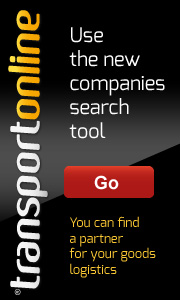Search Company:

The focus was on the leitmotif of digitalisation.
The maritime shipping industry has been undergoing dramatic change since 2015. At its traditional Sea Freight Conference in Interlaken Switzerland’s shippers’ body addressed the challenges of the future. The focus was on the leitmotif of digitalisation, which also covered IT security, as well as on strategies to improve efficiency and reduce risks, and on connections to and from the hinterlands.
The latest developments for the transportation of goods by water concern shippers, above all. The Lausanne-based Swiss Shippers’ Council held its 18th Sea Freight Conference in the Alpine town of Interlaken at the beginning of February, with the aim of analysing the latest industry trends and of having a good look at the risks and opportunities of the digitalisation process, as well as at links to and from the hinterlands.
The lessons of the past
SSC president and Swiss MP Fabio Regazzi welcomed guests with the assertion that there “wasn’t a lack of painful incidents in 2017.” The closed railway line in Rastatt or the ransomware ‘Petyra’ not only showed up the system’s vulnerability, but also the new possibilities, and the supply chain fields in which there is a need for action.
Frank Glienke, of the Swiss confectioner Lindt & Sprüngli, demonstrated the opportunities for shippers presented by digitalisation with his firm’s TMS module on the e-freight platform, which has been developed since 2012. “The system has a broad range of applications. It enables us to address numerous different aspects simultaneously, including bookings for the limited number of reefer plugs on containerships, or checking shipping lines bills.”
MME’s professor Andreas Furrer and Marsh’s Christiane Schumann showed how potential discrepancies between contractual parties, for example concerning e-documents, can be defused from the outset thanks to ‘smart’ contracts prepared in advance. A. Hartrodt’s Jens Roemer, in turn, asked a rhetorical question that underlined the fact that digital booking platforms cannot always keep up with a classical freight forwarder’s experience. “How might an algorithm react constructively to Rastatt?»
The right diversification strategy can also represent one way of protecting your company from risks. The Contship Italia Group’s Daniele Testi revealed the advantages of the balanced distribution of volumes across various European ports – always provided, of course, that there are good links to and from the hinterland, for example by rail across the Alps.
The trends towards megaships and the concentration of capacities are making the hinterland ever-more the happening region, as the port of Antwerp’s Danny Deckers elaborated. This means innovative approaches are the order of the day. Gerhard Oswald used the RailRunner model, which has already proved itself in the USA, to show how a 700 m train running between Braunschweig and Bratislava can carry eight trailers or a 400 t payload more than a conventional blocktrain. Read more
SOurce: ITJ




